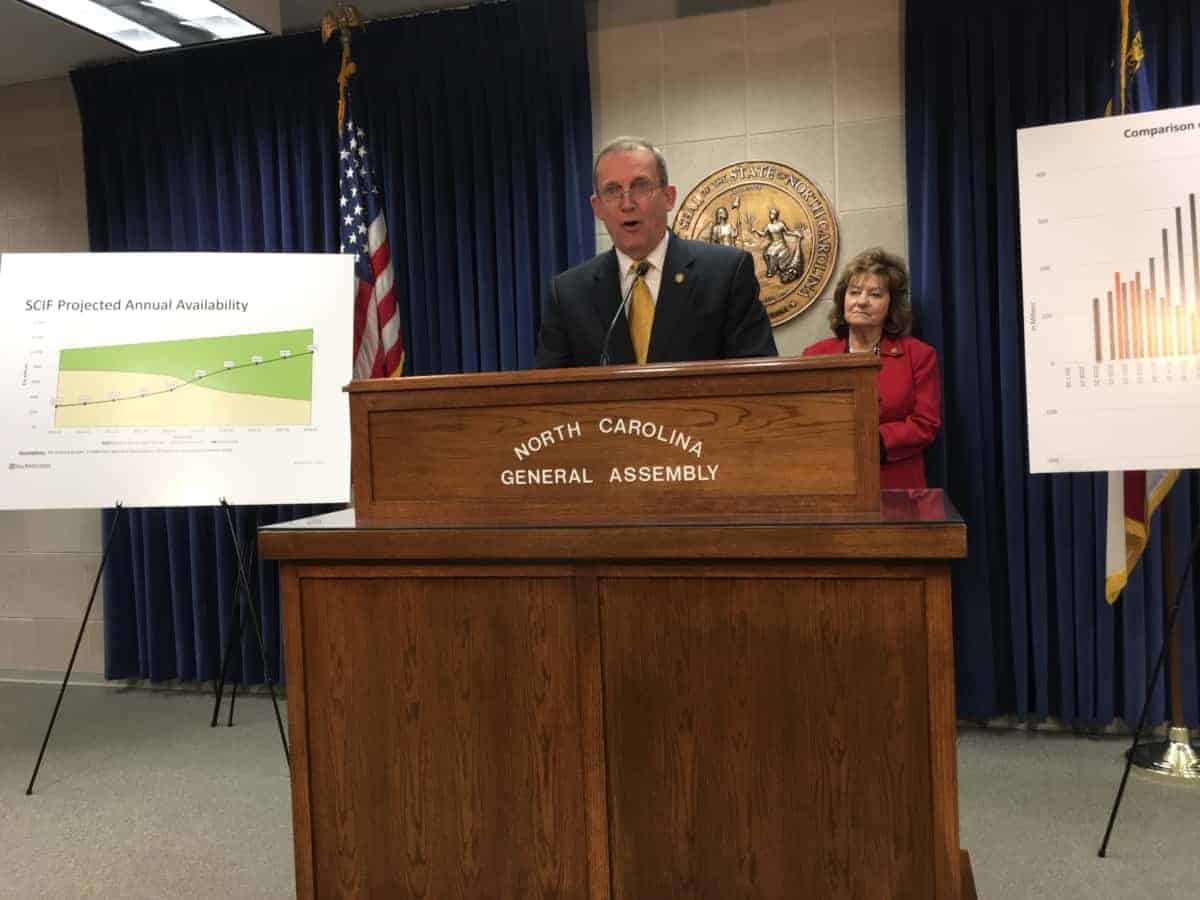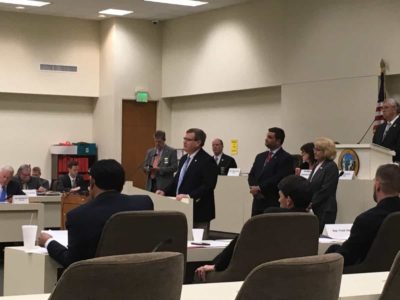
The big question after both the House and Senate dropped their budgets for the next two years wasn’t what their final compromise was going to look like. The question was: what role would Gov. Roy Cooper play?
With the ability to veto, and the Democratic numbers in the General Assembly to back it up, he could have a real position of power at the legislative table.
Recognizing that fact, legislative leaders reached out to Cooper as they negotiated the budget between their two chambers. The hope, it seemed, was to come up with a document that could pass muster with the governor and satisfy the Republicans in both chambers of the General Assembly.
It did not seem to go well.
Throughout last week, a back and forth played out via the press and in various statements with both sides accusing the other of not negotiating in good faith. A big sticking point appeared to be Medicaid expansion. Cooper wanted it on the table. Legislative Republicans did not.
On Friday, Rep. Craig Horn, R-Union, told EducationNC a budget would be out today. Also on Friday, Cooper’s spokesperson, Ford Porter, released the following in a statement after a meeting between Republican and Democratic legislative leadership over the budget:
“Governor Cooper and Democratic leaders again made clear to Republican leaders that they oppose corporate tax cuts, unaccountable school vouchers and the SCIF slush fund and said that any budget compromise has to include discussion of Medicaid expansion, a school and infrastructure bond and significantly higher teacher salaries.”
Porter went on to say that Cooper said these things are negotiable but, “Republican leaders have nearly completed their budget and are unwilling to discuss all of these important priorities that benefit our state.”
Of course, shortly after the governor sent out his statement, legislative Republican leaders followed with their own. They said it was Cooper who wasn’t willing to negotiate.
“This morning we met with the Governor and we brought a list of negotiating positions on topline budget targets, capital spending, taxes, teacher and state employee salaries, public education, and the rainy day fund. Despite repeated requests, the Governor did not come to the meeting with any specific positions on anything other than Medicaid expansion,” they wrote in the statement.
They went on to say that they offered to hold a special session to address health access issues which would include Medicaid expansion, but that the offer was rejected. They ended the statement by stating their hope that Cooper send back compromise offers quickly.
The Republicans have had supermajorities in both chambers of the General Assembly for so long (in recent history) that it is novel to have a budget process that actually has the governor as a serious player. After the election last November, it wasn’t clear exactly what that was going to look like. But the picture is now starting to form.
With the budget slated to pass the legislature this week, we’ll keep you updated on what happens. But whatever the budget compromise holds, the next move belongs to Cooper.
Recommended reading



